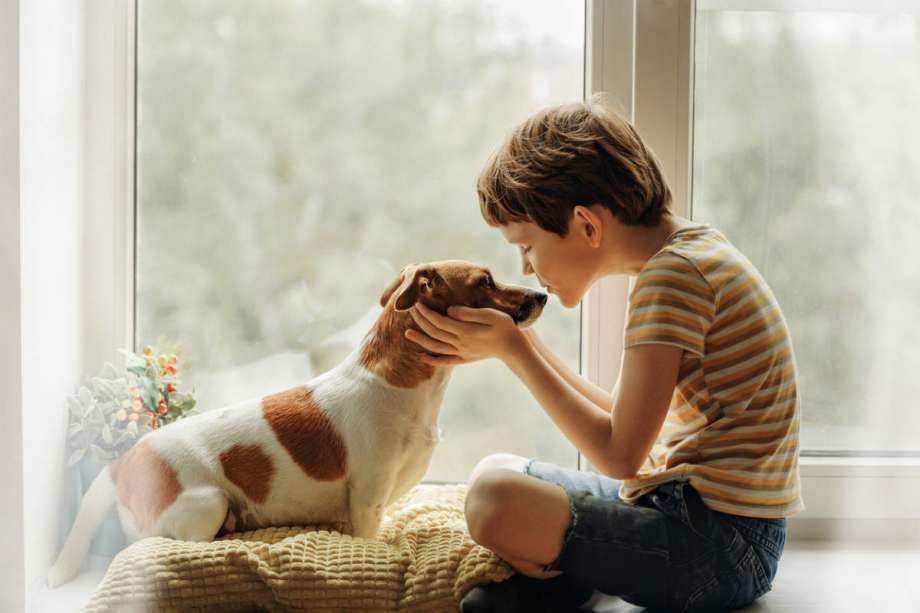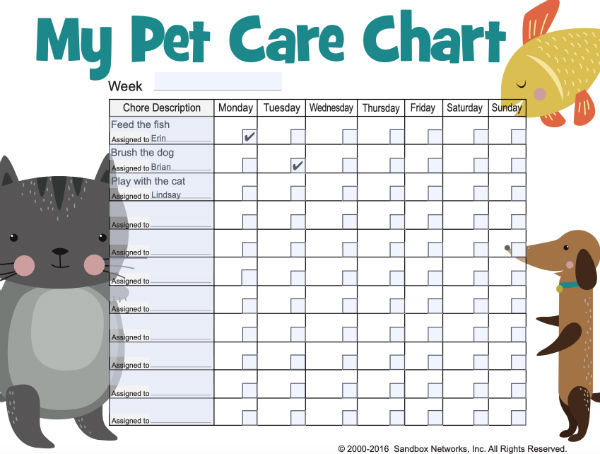How Pets Can Impact Kids' Mental Health

It's an unfortunate fact of life that mental health problems in children are on the rise, but they are still very often overlooked.
Many forget that children can develop depression, behavioral disorders, and psychiatric illness just like adults can.
These problems can be difficult to recognize because a child's brain is still only developing.
More: How Reading to Pets Can Help Boost Kids' Reading Skills
A pet can be one of the greatest forms of affordable therapy for those struggling with their mental health. But is this as true for children as it is for adults?
With all of the misconceptions floating around, parents may be reluctant to allow their children to have a pet.
We've debunked three common misconceptions on children and pet care, with a particular focus on children with special needs and mental health challenges.
Don't have time to read now? Pin it for later:

Myth 1: A child's pet is the parent's responsibility
Many parents assume that a child is too young to be responsible for a pet's care. Parents may be reluctant to allow their kid to have a pet because they assume they will end up doing most of the work.
In reality, a pet is one of the best ways to instill a sense of responsibility in children, and most children can be taught to keep up with an animal's care.
Many beginner pets—including goldfish, tetras, and nano fish—have lower maintenance requirements that children can easily learn to keep up with.
Before getting their kid a pet, it's the parent's responsibility to make sure that the kid is aware of the work involved in caring for it. The kid must understand that pet care isn't all fun and games.
Parents should do their research and make sure to involve the child in all aspects of care, including feeding and cleaning.
If the child shirks their responsibility, never take over caring for the pet. Instead, remind the child that it is their job to care for the animal if they want to keep it around.
If the child fully understands that the pet is theirs alone, it will motivate them to put forth the time and energy to keep it. A healthy, happy pet provides a sense of accomplishment like little else.
Use this printable pet care chart to encourage kids to take care of their family pet:

Myth 2: The death of a pet is too much for kids to handle
It's unfortunate that many parents will allow their kids a small pet with the expectation that it won't live long.
On the flip side, parents may be afraid that the death of a pet is too much for a kid to handle, especially a kid with challenges.
When preparing your child for a new pet, it's important that they understand that pets do not live as long as people do. They should be given an exact understanding of how long their new friend will be around.
If a child knows that their pet won't be around forever, it encourages them to cherish every moment that they have.
At the same time, they'll want to take the best possible care of their new friend to ensure they'll be around for a long time.
Never purchase a pet without making a commitment to the animal's full lifespan. A goldfish is meant to last up to 10 years, not six months!
The death of a pet is often a child's first experience with death. This unfortunate reality of pet keeping opens up teachable moments in regards to dealing with and processing grief.
Myth 3: The child will get bored of the pet
Caring for a pet is a commitment, no matter how big or small.If a pet is treated like a toy or as something 'disposable,' the child will think of it as such. A new pet should be established as a living member of the family.
Parents should frame the years-long commitment to a pet as a positive. The child is more likely to get tired of it if they only see it as work.
If seen in a positive light, the time and effort involved in keeping their new friend happy and healthy will be seen as a rewarding experience.
Children with social challenges will benefit from the companionship of a pet if they're encouraged to view the animal as their friend. Caring for a pet also fosters social interaction with other pet owners and communities.
Those with mental health struggles often feel validated knowing that their pet will never judge them and is always by their side.
In short, the less a pet is treated as a tiresome nuisance, the less likely your child will get bored of caring for it.
Summary
Allowing a child to have a pet—any pet—is not a decision to be taken lightly. However, pet care brings its own rewards for a child with mental challenges.
The mental health benefits of pet keeping apply to children just as much as adults.
The sense of responsibility and accomplishment your child will get from caring for their own pet is one they can't get anywhere else.
Caring for a pet allows your child to have a friend that will love them unconditionally and encourages the development of empathy and understanding.
Even though pet care is a lot of work, there is certainly some fun in it as well. Above all, you just might find that pet therapy is just what the doctor ordered!
Is your family considering getting a dog? These are the 16 of the Best Dog Breeds for Kids and Families.
Robert Woods is the creator of FishKeeping World, and a third-generation fish keeper and animal lover.

